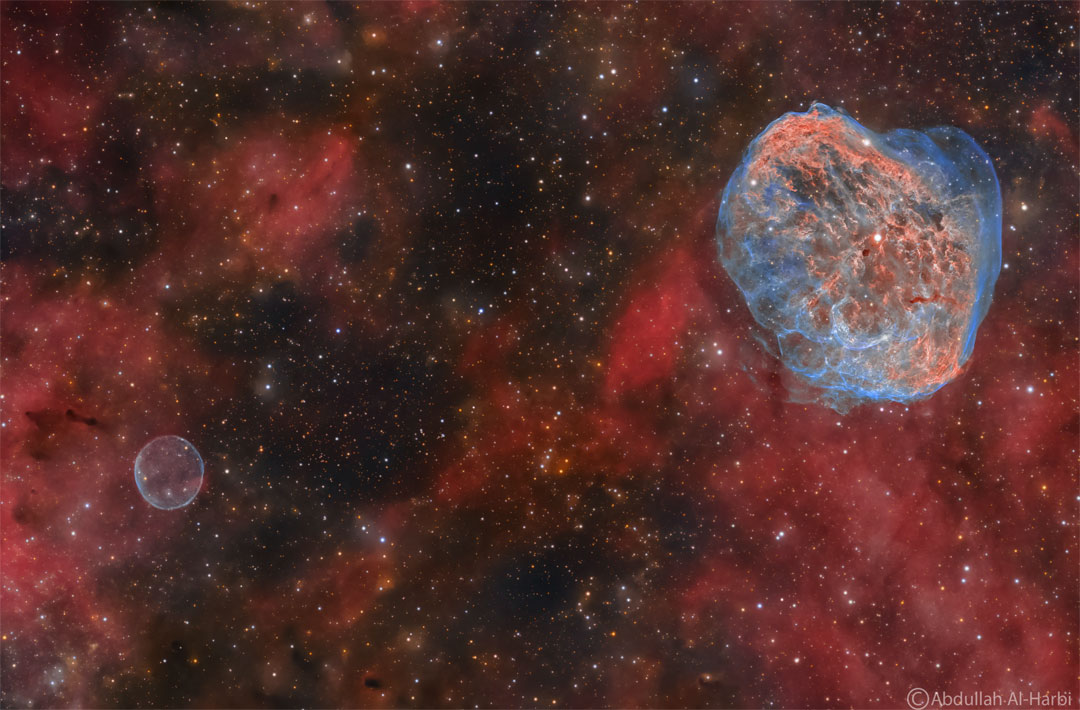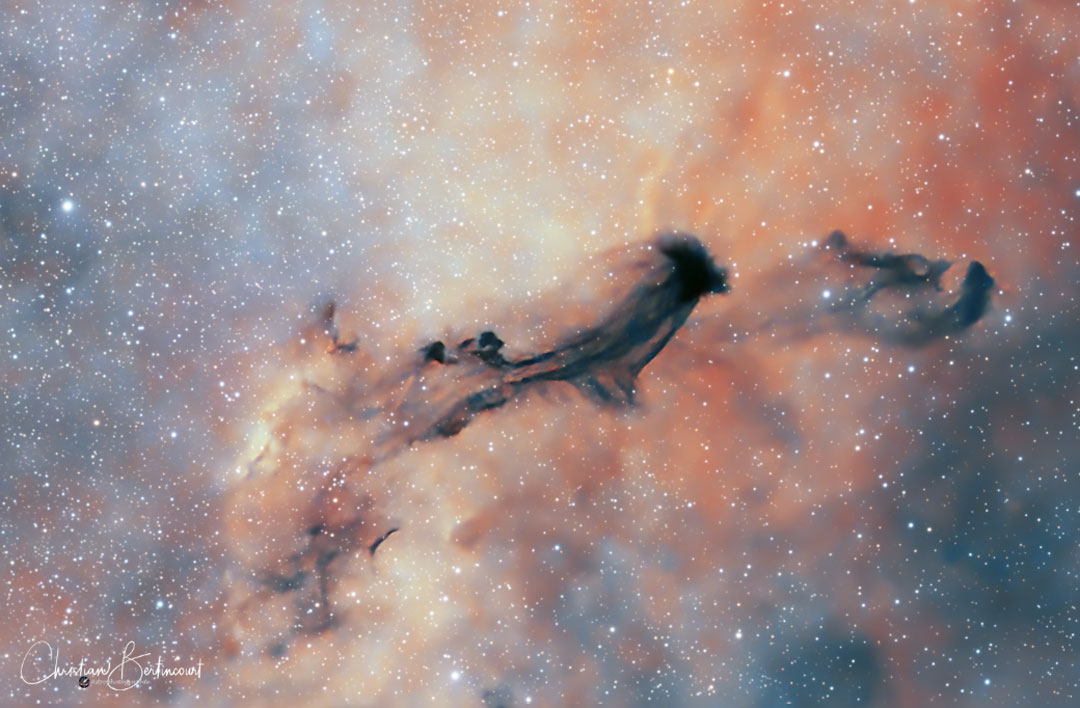2023 September 4
Credit & Copyright: Abdullah Al-Harbi
Explanation: As stars die, they create clouds. Two stellar death clouds of gas and dust can be found toward the high-flying constellation of the Swan (Cygnus) as they drift through rich star fields in the plane of our Milky Way Galaxy. Caught here within the telescopic field of view are the Soap Bubble (lower left) and the Crescent Nebula (upper right). Both were formed at the final phase in the life of a star. Also known as NGC 6888, the Crescent Nebula was shaped as its bright, central massive Wolf-Rayet star, WR 136, shed its outer envelope in a strong stellar wind. Burning through fuel at a prodigious rate, WR 136 is near the end of a short life that should finish in a spectacular supernova explosion. Discovered in 2013, the Soap Bubble Nebula is likely a planetary nebula, the final shroud of a lower mass, long-lived, Sun-like star destined to become a slowly cooling white dwarf. Both stellar nebulas are about 5,000 light-years distant, with the larger Crescent Nebula spanning about 25 light-years across. Within a few million years, both will likely have dispersed.

